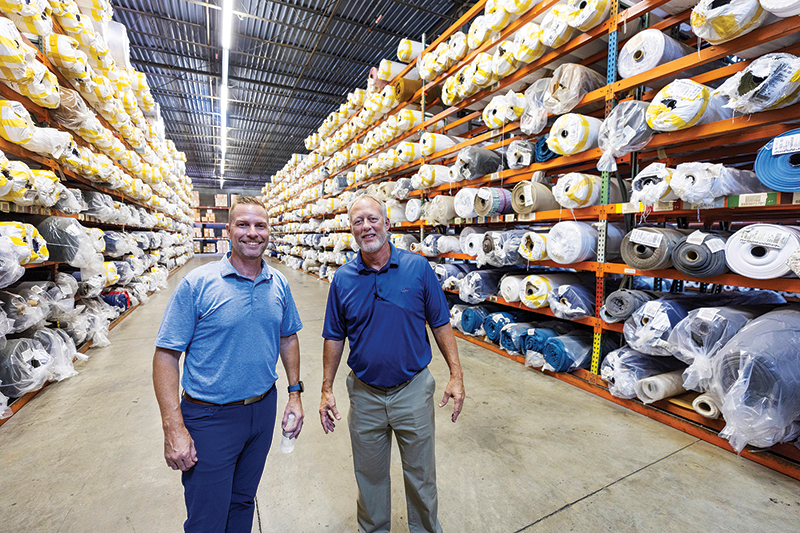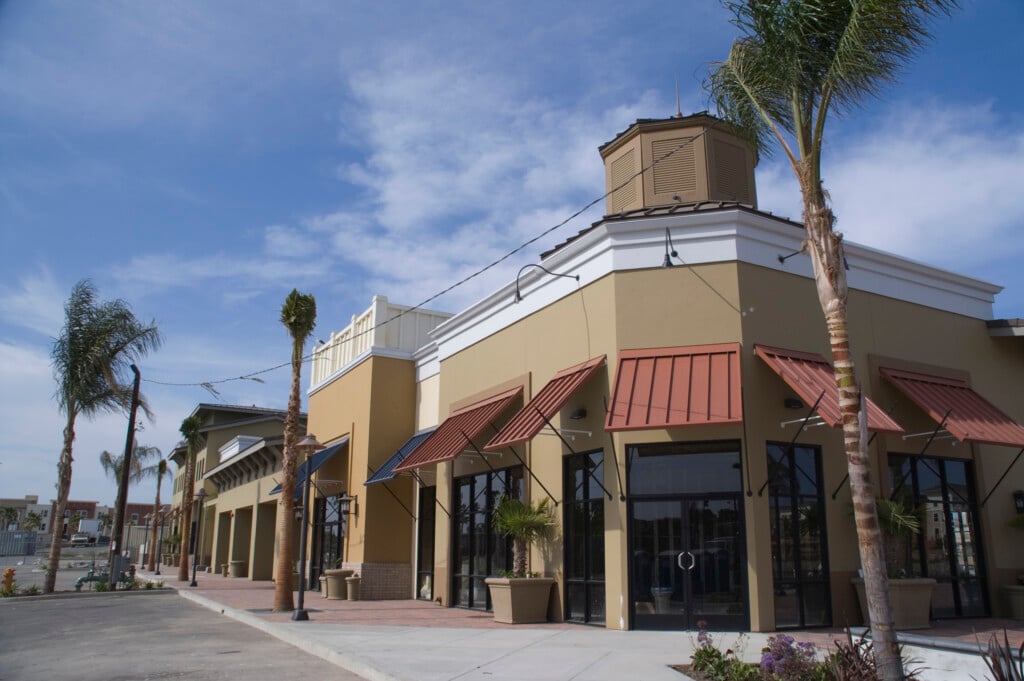Evolving and Surviving
WestPoint textile mill is still humming

Inside a large, gray building on the south side of Chipley, a mix of state-of-the-art machinery and women behind sewing machines spin out textiles one after another. The machinery moves bed comforters along a metal overhead track system bringing the work to the operators while the sewing machines whir, stitching up pillows and edges of comforters.
It’s just a day in the life of one of the few remaining textile operations in the country, and Terry Ellis couldn’t be more proud. Ellis is a vice president at WestPoint Hospitality, a division of WestPoint Home that has been in operation in Chipley for 40 years.
Ellis joined the company in 1984 and has spent most of his career at the Chipley plant. He beams when talking about the facility, the people and the products produced there.
“I am so thankful for the employees who have stuck with us through all the changes,” he said.
Ellis has had a front-row seat to changes in the textile industry throughout his life. His father, Ole Ellis, headed the Chipley Chamber of Commerce when a WestPoint representative scouted the area for a new plant in 1981. Ellis, who was 16 at the time, remembers his father going to visit WestPoint bearing a gift of Stone’s sausage from a local Chipley meat market.

Michelle Clayton works on a production line at the Chipley plant sewing edges on comforters. Photo by Mike Fender
The public relations campaign was successful, and the Chipley WestPoint plant opened in 1983. The plant would grow until its heyday in 2005 when it employed over 900 people and operated three shifts, 24 hours a day.
By 2000, WestPoint had 42 production facilities in the United States, mostly in the Southeast. The company is the product of the merger of three companies: WestPoint Manufacturing Company (founded 1866), Pepperell Manufacturing Company (founded 1851) and J.P. Stevens & Co. (founded 1813).
By 2009, pressures in the global textile industry forced the company to announce the closing of the Chipley plant. Jobs were being moved to Mexico.
Ellis finds it ironic that he was the one making the announcement that the plant was closing while his dad was the one who got to announce the plant was coming to Chipley in the first place.
“But our employees continued to do their part, working hard,” he said. “Ultimately we were able to turn that around, and I was able to stand back up in front of everybody and announce that we weren’t going to close. It was a great day.”

Terrie Taylor and Denise Slay work at stations in the Chipley production facility producing comforters. Photo by Mike Fender
Richard Williams remembers the first meeting in front of the WestPoint employees. As executive director of CareerSource Chipola, Williams was on hand to help employees get training following the anticipated layoff. He said the first announcement was a real blow to the entire region.
Williams was also on hand when Ellis announced to the employees that the plant was staying open. “It was like being at a funeral and all of a sudden the body got up and walked away,” Ellis remembered. “There was just so much joy in the room.”
Now, 13 years later, the plant employs 165 people. It is one of the largest employers in Washington County. The facility has a handful of workers who have worked there from the start and several second-generation employees. The plant operates in a space just under half a million square feet in size.

Maggie Jones, left, and JoAnn Fisher stuff and sew up pillows. Photo by Mike Fender
Out of the 42 WestPoint production plants that were in operation at the turn of the century, Chipley is the only one left in the country. A second manufacturing plant now operates out of Bahrain.
The challenges in a global economy have been devastating to the country’s textile industry. Ellis notes that many foreign countries have invested money and technology in their textile industry.
“While wages have come up in some other countries, they still have a wage gap with salaries in the United States,” he said. “We are extremely proud to still be here in operation and continuing to provide jobs for our people.”
WestPoint describes its employees as “highly skilled and versatile.” Its website calls the Chipley plant “one of the most efficient cut-and-sew operations in the United States.” It also has compression and monogramming capabilities.
“We are manufacturing products that are intended for the top of the bed,” Ellis said. “In most cases, you are looking at filled products, comforters, bedspreads, bed pillows and mattress pads. The items produced in Chipley supply retail markets across the country with one of their largest customers being Ralph Lauren.
The hospitality division is a growing portion of the business, and Ellis says the company is supplying much of the hotel, motel and resort world with products.
In 2022, the plant started using 100% recycled polyester fiberfill to stuff into pillows and comforters. Bales of raw polyester from recycled water bottles come into the plant, and automated machines turn it into the ultra-soft filling used in their products.

Sabrina Gillette operates a sewing machine. Photo by Mike Fender
In addition to buying from retailers, the general public can buy WestPoint products, including those made in Chipley, directly from the WestPoint website. They also operate a mill store in Chipley.
The company stays connected to the community by holding backpack and school supply drives each year and hosting barbecue dinners at senior facilities among other activities. It tries to do something for the community each month, according to senior manager Kris Graham.
Graham notes the company has also invested a lot of time and energy into safety and at this writing is currently riding a record 300-day streak without a lost time incident. “It’s a milestone for us,” he said.
Walking through the plant, Ellis calls out employee after employee by their first name. The production line looks more like Santa’s Workshop than a factory.
“It’s a pretty amazing story when you think about it,” Ellis said. Throughout his career, he has watched all the other major textile companies like Springs, Hillcrest and Cannon disappear. “They have all gone,” he said. “For WestPoint to still be here and be part of the process is something special.”

